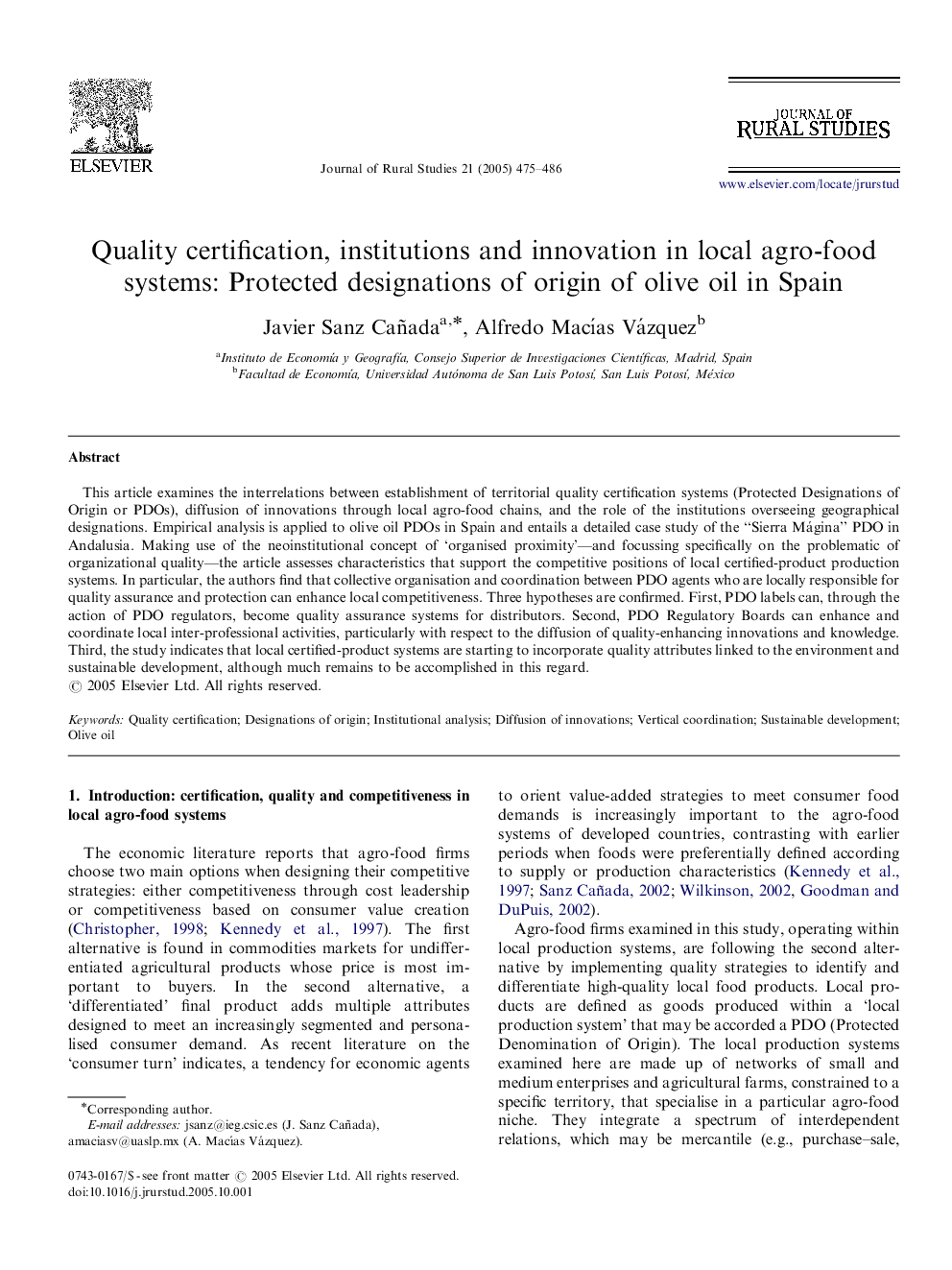| Article ID | Journal | Published Year | Pages | File Type |
|---|---|---|---|---|
| 10251461 | Journal of Rural Studies | 2005 | 12 Pages |
Abstract
This article examines the interrelations between establishment of territorial quality certification systems (Protected Designations of Origin or PDOs), diffusion of innovations through local agro-food chains, and the role of the institutions overseeing geographical designations. Empirical analysis is applied to olive oil PDOs in Spain and entails a detailed case study of the “Sierra Mágina” PDO in Andalusia. Making use of the neoinstitutional concept of 'organised proximity'-and focussing specifically on the problematic of organizational quality-the article assesses characteristics that support the competitive positions of local certified-product production systems. In particular, the authors find that collective organisation and coordination between PDO agents who are locally responsible for quality assurance and protection can enhance local competitiveness. Three hypotheses are confirmed. First, PDO labels can, through the action of PDO regulators, become quality assurance systems for distributors. Second, PDO Regulatory Boards can enhance and coordinate local inter-professional activities, particularly with respect to the diffusion of quality-enhancing innovations and knowledge. Third, the study indicates that local certified-product systems are starting to incorporate quality attributes linked to the environment and sustainable development, although much remains to be accomplished in this regard.
Keywords
Related Topics
Life Sciences
Agricultural and Biological Sciences
Forestry
Authors
Javier Sanz Cañada, Alfredo MacÃas Vázquez,
